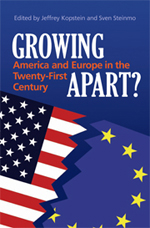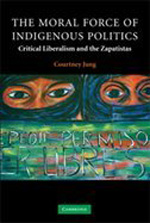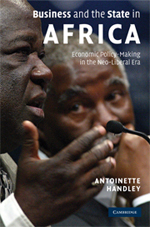
The Comparative Turn in Canadian Political Science
Over the past decade, the study of Canadian politics has changed profoundly. The introspective, insular, and largely atheoretical style that informed Canadian political science for most of the postwar period has given way to a deeper engagement with, and integration into, the global field of comparative politics.
This volume is the first sustained attempt to describe, analyze, and assess the “comparative turn” in Canadian political science. Canada’s engagement with comparative politics is examined with a focus on three central questions: In what ways, and how successfully, have Canadian scholars contributed to the study of comparative politics? How does study of the Canadian case advance the comparative discipline? Finally, can Canadian practice and policy be reproduced in other countries?

The Unexpected War: Canada in Afghanistan
With our troops now committed until 2009, The Unexpected War exposes the poverty of Canadian foreign policy, arguing that Canada’s various military missions in Afghanistan have been ad hoc in nature and made on the basis of political calculations — often flawed — about Canadian-American relations. Drawing upon interviews with key decision makers and advisors, and a first-hand account by a former Defence Ministry insider, the book offers a gripping account of how Canada became embroiled in a new kind of war — fighting insurgency in a failed state. Winner of the 2007 Shaughnessy Cohen Prize and shortlisted for the 2007 Donner Prize.

Social Democracy in the Global Periphery: Origins, Challenges, Prospects
Social Democracy in the Global Periphery focuses on social-democratic regimes in the developing world that have, to varying degrees, reconciled the needs of achieving growth through globalized markets with extensions of political, social and economic rights. The authors show that opportunities exist to achieve significant social progress, despite a global economic order that favours core industrial countries. Their findings derive from a comparative analysis of four exemplary cases: Kerala (India), Costa Rica, Mauritius and Chile (since 1990). Though unusual, the social and political conditions from which these developing-world social democracies arose are not unique; indeed, pragmatic and proactive social-democratic movements helped create these favourable conditions. The four exemplars have preserved or even improved their social achievements since neoliberalism emerged hegemonic in the 1980s. This demonstrates that certain social-democratic policies and practices – guided by a democratic developmental state – can enhance a national economy’s global competitiveness.

Queer Inclusions, Continental Divisions: Public Recognition of Sexual Diversity in Canada and the United States
No area of public policy and law has seen more change than lesbian, gay, bi-sexual, and trans-gender rights, and none so greatly needs careful comparative analysis. Queer Inclusions, Continental Divisions explores the politics of sexual diversity in Canada and the United States by analyzing three contentious areas — relationship recognition, parenting, and schooling. It enters into long-standing debates over Canadian-American contrasts while paying close attention to regional differences.
David Rayside’s examination of change over time in the public recognition of sexual minorities is based on his long experience with the analysis of trends, as well as on a wide-ranging search of media, legal, and social science accounts of developments across Canada and the United States. Rayside points to a “take off” pattern in Canadian policy change on relationship recognition and parenting, but not in schooling. At the same time, he explores the reasons for a “pioneering” pattern in early gains by American LGBT activists, a surprising number of court wins by American lesbian and gay parents, and changes in American schooling that, while still modest, are more substantial than those instituted by the Canadian system.

Montesquieu and His Legacy
Montesquieu (1689-1755) is regarded as one of the most important thinkers of the Enlightenment. His Lettres persanes and L’Esprit des lois have been read by students and scholars throughout the last two centuries. While many have associated Montesquieu with the doctrine of the “separation of powers” in the history of ideas, Rebecca E. Kingston brings together leading international scholars who for the first time present a systematic treatment and discussion of the significance of his ideas more generally for the development of Western political theory and institutions. In particular, Montesquieu and His Legacy supplements the conventional focus on the institutional teachings of Montesquieu with attention to the theme of morals and manners. The contributors provide commentary on the broad legacy of Montesquieu’s thought in past times as well as for the contemporary era.

Growing Apart? America and Europe in the 21st Century
This book explores the forces pushing America away from its democratic friends and neighbors. It examines the underlying forces shaping the democratic states of the West. Individual chapters pose questions such as: Why is religion so powerful in America? How will the flow of immigration shape politics across the West? Why is Europe rejecting America’s version of capitalism? How is the media changing in Europe and America? Why are “Conservatives” so different on each side of the Atlantic? And, finally, what do these competing forces portend for the future of the transatlantic relationship?

Bringing the Passions Back In: The Emotions in Political Philosophy
Combining intellectual history and political theory, the contributors to Bringing the Passions Back In illuminate the place of emotions in modern liberal and democratic politics. Bringing the Passions Back In will interest scholars and students in political theory, the history of ideas, sociology, psychology, cultural studies, and philosophy.

The Moral Force of Indigenous Politics
Tracing the political origins of the Mexican indigenous rights movement, from the colonial encounter to the Zapatista uprising, and from Chiapas to Geneva, Courtney Jung locates indigenous identity in the history of Mexican state formation. She argues that indigenous identity is not an accident of birth but a political achievement that offers a new voice to many of the world’s poorest and most dispossessed. The moral force of indigenous claims rests not on the existence of cultural differences, or identity, but on the history of exclusion and selective inclusion that constitutes indigenous identity. As a result, the book shows that privatizing or protecting such groups is a mistake and develops a theory of critical liberalism that commits democratic government to active engagement with the claims of culture. This book will appeal to scholars and students of political theory, philosophy, sociology, and anthropology studying multiculturalism and the politics of culture.

Business and the State in Africa: Economic Policy-Making in the Neo-Liberal Era
The dominant developmental approach in Africa over the last twenty years has been to advocate the role of markets and the private sector in restoring economic growth. Recent thinking has also stressed the need for ‘ownership’ of economic reform by the populations of developing countries, particularly the business community. This book studies the business-government interactions of four African countries: Ghana, Zambia, South Africa and Mauritius. Employing a historical institutionalist approach, Antoinette Handley considers why and how business in South Africa and Mauritius has developed the capacity to constructively contest the making of economic policy while, conversely, business in Zambia and Ghana has struggled to develop any autonomous political capacity. Paying close attention to the mutually constitutive interactions between business and the state, Handley considers the role of timing and how ethnicised and racialised identities can affect these interactions in profound and consequential ways.

Women, Power, Politics: The Hidden Story of Canada’s Unfinished Democracy
In this engaging, no-nonsense, and witty book, Sylvia Baskevkin argues that Canadians have a profound unease with women in positions of political authority–what she calls the “women plus power equals discomfort” equation. She explores the specific reasons why this discomfort is particularly severe in Canada. Bashevkin also evaluates a range of barriers faced by women who enter politics, including the media’s role in assessing the leadership styles, personal appearances, and private lives of female politicians. In clear, accessible terms, Bashevkin explains concepts such as “gender schemas” and “media framing” in terms of key examples, such as Belinda Stronach and Hillary Clinton.
Finally, Bashevkin outlines some compelling solutions to address the stalemate facing women in Canadian politics.